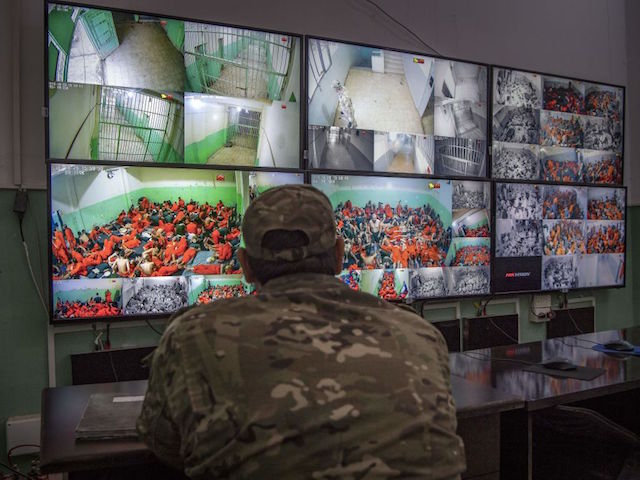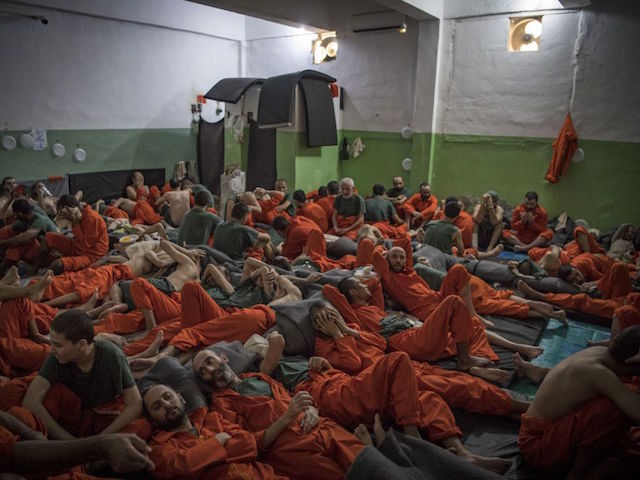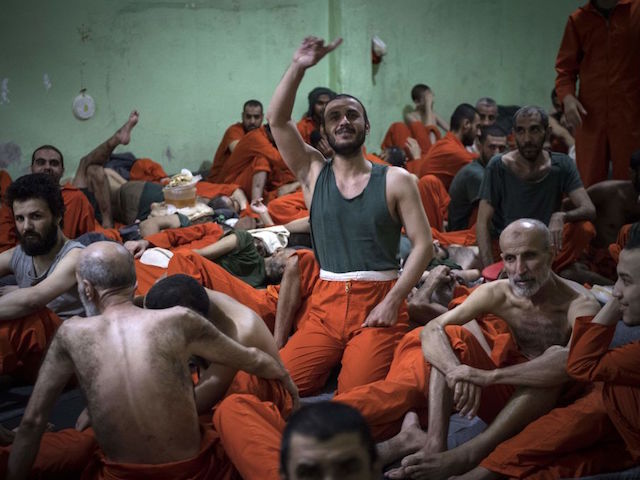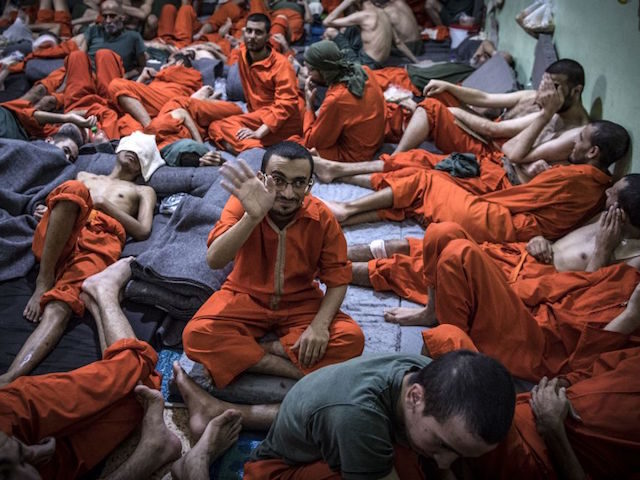Diseased and wounded Islamic State terrorists under Kurdish custody in Syria are requesting to be returned home to the West, the Agence-France Presse (AFP) reported on Tuesday.
Among the aforementioned Islamic terrorists are persons infected with HIV/AIDS and hepatitis, according to the AFP. Some injured terrorists “have “organs spilling out of open wounds,” AFP noted.
The AFP was granted access to the Kurdish-run detention facility in Hasakeh, a city in northern Syria.

A fighter with the Syrian Democratic Forces (SDF) monitors on Surveillance screens, prisoners who are accused of being affiliated with the Islamic State (IS) group, at a prison in the northeastern Syrian city of Hasakeh on October 26, 2019. (FADEL SENNA/AFP via Getty Images)

Men, suspected of being affiliated with the Islamic State (IS) group, gather in a prison cell in the northeastern Syrian city of Hasakeh on October 26, 2019. (Photo by FADEL SENNA/AFP via Getty Images)

Men, suspected of being affiliated with the Islamic State (IS) group, gather in a prison cell in the northeastern Syrian city of Hasakeh on October 26, 2019. (FADEL SENNA/AFP via Getty Images)

Men, suspected of being affiliated with the Islamic State (IS) group, gather in a prison cell in the northeastern Syrian city of Hasakeh on October 26, 2019. (FADEL SENNA/AFP via Getty Images)
Among the detained Islamic terrorists are teenagers and men who, according to Kurdish sources, represent over 50 nationalities.
According to Kurdish forces, the final territorial remnant of ISIS’s Islamic “caliphate” in eastern Syria was liberated in March when approximately 2,000 ISIS jihadists surrendered to the Syrian Democratic Forces, a U.S.-allied coalition largely made up of Kurdish fighters.
Since stripping ISIS of its control of its “capital” Raqqa in 2018 with the help of U.S. air support, Syrian Democratic Forces have continued in intermittent conflict with remaining jihadis still present there. Those under custody in northwest Syrian Kurdistan (Rojava) are demanding to go back to the nations they abandoned to join the establishment of the caliphate.
“I want to leave the prison and go back home to my family. … I want to go back to Britain,” said 22-year-old Aseel Mathan.
“My organs are spilling out,” said Aballah Nooman, a Belgian national, who lifted his shirt to reveal an open wound he said he sustained from a fellow jihadist who accidentally shot him while cleaning his weapon.
A 42-year-old ISIS terrorist told the AFP that he deceived his wife into traveling to the “caliphate” by promising her a vacation in Turkey:
“I didn’t tell her, I didn’t want her to be scared,” Abdel Azim says, explaining he has no idea where she and their five children are now.
“I would like to see her again. They can hang me after that, I just want to tell her I’m sorry I took them in a country at war.”
On Sunday, President Donald Trump highlighted the Supreme Court’s upholding of the constitutionality of his executive order banning nearly all travel — and immigration — from failed Muslim-majority states Chad, Iran, Iraq, Libya, Syria, and Yemen. Democrats and the broader left derided the presidential directive as a “Muslim ban.”
Follow Robert Kraychik on Twitter @rkraychik.

COMMENTS
Please let us know if you're having issues with commenting.